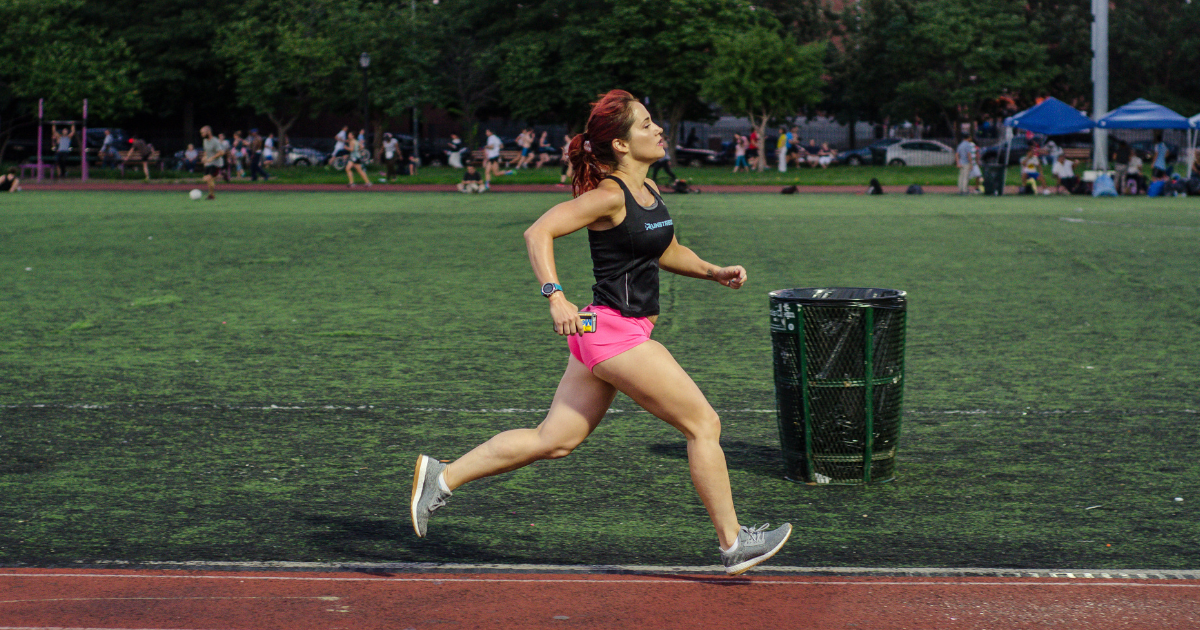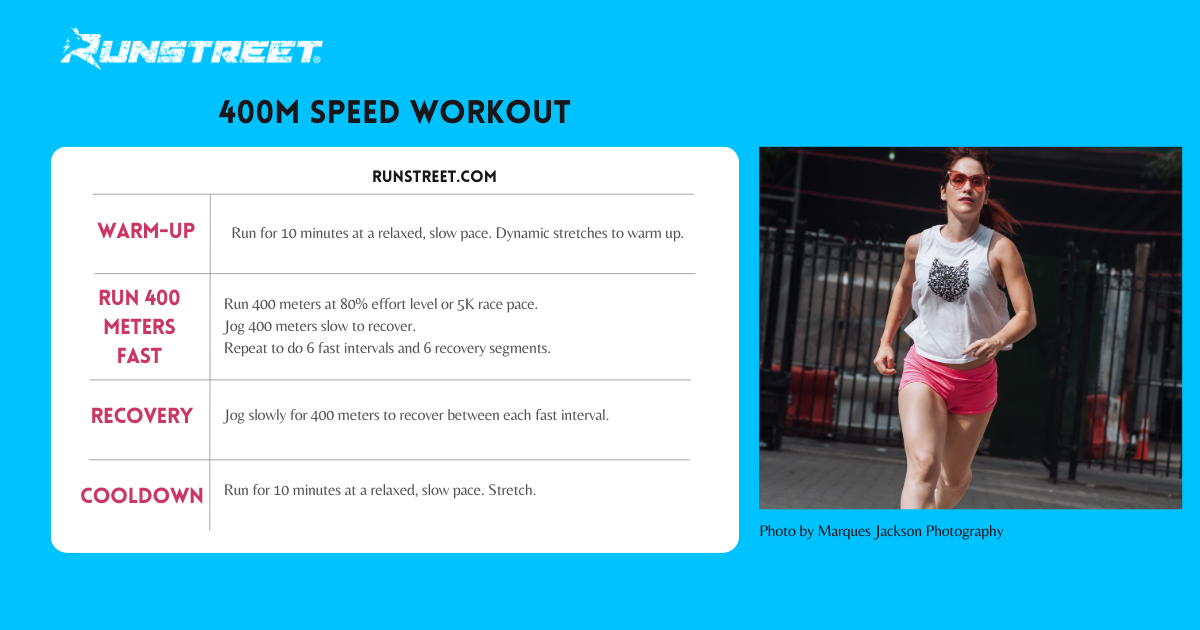Half Marathon Miles, Questions and Tips from a Run Coach
Photos by Marques Jackson Photography.
By Marnie Kunz, NASM-certified trainer, USATF- RRCA-certified run coach
If you’re wondering about half marathon miles and distances and what training you need to prepare for a half marathon, you’ve come to the right place. As a longtime runner and running coach, I’ve helped many runners complete their first half marathons. The half marathon - which is literally half of a marathon, at 13.1 miles - is one of the most popular race distances for good reason. It’s a challenging race distance but not as time-consuming as a marathon to run and train for. This guide will go over the most common questions people ask about half marathons and offer training tips to help you conquer the half marathon.
Related Post: 15 Best Half Marathons in the World
If you need a half marathon training plan to run your best race, visit the Runstreet Training Center. From beginner’s half marathon training plans to customized training programs, we have everything you need to succeed in crossing the finish line with your best performance on race day.
The Basics: Half Marathon Distance
So, how far is a half marathon in miles? A half marathon is exactly half of a marathon. The amount of half marathon miles you’ll run in a half marathon race is 13.1094 miles or 21.0975 km. Usually, people shorten this to say 13.1 miles or 21k for the half marathon distance. A full marathon is equal to 26.2 miles, or 42.195 km.
Related Post: How Long Is a Half Marathon? All Your Questions Answered
Frequently Asked Questions
How far is a half marathon in miles?
A half marathon is half of a marathon distance. 13.1 half marathon miles is half the distance of a marathon (which is 26.2 miles).
What is the long run for a half marathon?
Your long run is a weekly distance run that builds up your endurance to prepare for running a half marathon. Usually, long runs range in distance from a minimum of 4 or 5 miles up to 12 or 13 miles for the final long run before race day. Your exact long-run distances will build gradually over time and depend on your fitness level and training plan.
How many miles is a 5K race?
A 5K race is 5 kilometers or 3.1 miles.
Related Post: 5K Questions and Training Guide
Can you run a marathon if you can run a half?
If you run a half marathon, that’s a great milestone for building your endurance. However, you will still need more training to prepare for a full marathon since it’s twice as far as a half marathon.
What is a good half marathon time?
The average half marathon time is 2 hours or more. A “good” half marathon time is subjective and depends on your age, gender, and fitness level. In general, under two hours is considered a good half marathon time.
Sample Half Marathon Training Program
Whether you’re running your first half-marathon or your 20th, a half-marathon training plan will help you hit your peak performance for race day. If you’re a new runner, check out our free beginner’s half marathon training plan for a more detailed training schedule and workouts you can follow. For advanced runners, we have an 8-week half marathon training program and a 12-week half marathon training plan.
Training Principle of Progression
These are the main ingredients for a successful half marathon training program that builds your strength and endurance gradually. A good training plan will use the principle of progression, which states that increases in time or intensity should be kept within 10% or less each week to allow for a gradual adaptation while minimizing risk of injury, according to the National Academy of Sports Medicine.
According to the training principle of progressive overload, your half marathon miles will increase by no more than 10 percent from week to week. So for instance, if you run 20 miles one week, your plan may increase to include 22 total miles the following week.
Long Runs
Long runs are an essential part of any half marathon training program. A weekly long run improves your endurance and also helps train your mind to persevere over long distances. Usually, your long runs will increase by a mile or two each week.
Long runs are also a great time to practice using energy gels and fuels to power your workouts. For runs that last at least an hour or more, taking running fuel will replenish your body’s depleted glycogen stores, giving you the energy to keep running longer. Try different running fuel options for your long runs until you find one that works well for you and is easily digestible.
Related Post: 10 Long Run Tips from a Run Coach
Base Runs
Base runs lay the foundation for your half marathon training. These relaxed-pace runs will be the most frequent workouts in your program. Base runs are easy days that improve your overall fitness level and conditioning.
Although missing a base run or two may not hurt you in the long term, consistency is key for half marathon training. If you miss a workout, don’t beat yourself up. Simply get back on track the following day. Completing your regular base runs will help you maintain the stamina and endurance you’re working hard to build.
Rest
Rest days give your body much-needed time to recover from workouts. For most runners, I recommend taking at least one rest day per week for optimal muscle recovery. You may want to take some active recovery time with activities like walking or yoga or take complete rest days with a break from all activities.
Sometimes, when you’re following a training plan, your body has a different schedule than your planned workouts. If you feel persistent tightness or soreness that doesn’t go away after workouts, take an extra rest day to give yourself more time to recover.
Related Post: 10 Tips for Muscle Recovery
Cross Training
Cross training for runners includes almost any exercise besides running. Cross training can help you get stronger and work different muscles than you use for running, helping you become a well-balanced athlete. Cross training can also help maintain your cardio fitness level while giving your body a break from running.
Low-impact workouts like walking, cycling, pilates, yoga, and swimming are excellent cross-training activities for runners. Doing one cross-training workout per week is ideal for most runners without being too time-consuming.
Strength Training
Strength training boosts your muscle strength and helps reduce your risk of running injuries. Strength work can also help improve your running form and make you a faster, more efficient runner.
So how much should you strength train and what exercises are best for your muscles and joints? The Physical Activity Guidelines for Americans recommends two strength training sessions per week for good health. I usually include two strength training workouts a week in half marathon training plans for my clients. Two workouts per week can make a big difference in your athletic performance without demanding too much of your time.
As for your workouts, you try these 9 Bodyweight Exercises for a full-body workout. Bodyweight workouts will help you get stronger and perfect your form, and they can be modified for beginners.
If you want to add intensity, you can use dumbbells for your workouts. Check out these 10 Best Arm Exercises with Dumbbells and 10 Best Leg Exercises with Dumbbells for excellent dumbbell exercises.
Speed Workouts
If you’re a first-time half marathon runner, you don’t need to worry about speed workouts as you will be focused on endurance and completing your race. For intermediate and advanced half marathon runners, though, speed workouts can help you improve your running and race pace. If you’re chasing a PR, speed workouts can help you unlock your best half marathon finish time.
Tempo runs are steady-state speed runs at a challenging pace, usually at your goal 10K race pace. These workouts help improve your oxygen efficiency and train your body to run fast even while fatigued.
Interval training is speed work that includes periods of fast running followed by slow recovery jogs. There are many options for interval workouts, ranging from 400-meter repeats to Yasso 800s and mile repeats.
Nutrition
Eating nutrient-rich foods will give you the best running performances and will help you bounce back from tough workouts more quickly. Carbohydrates are essential for energy on the run. Choose whole grains for most of your carb calories and opt for minimally processed foods like oatmeal, brown rice, and whole grain bread as much as possible, and skip the excessively processed foods.
Protein is another crucial macronutrient for runners and active people. Protein helps with building and repairing muscles and workout recovery. Protein-rich foods you can add to your eating program include lentils, beans, lean meats, Greek yogurt, and nuts.
For more recommendations on healthy eating for runners, check out our Guide to Nutrition for Runners from a Dietitian.
Half Marathon Training Tips from a Run Coach
Try these strategies to improve your half marathon training:
Follow a training plan. Trying to run a half marathon without a training plan is like figuring out how to get to a new place without a map. A good training plan gives you a breakdown of what you need to do each day to prepare for your big race.
Schedule your workouts. You’ll be less likely to miss your runs if you plan ahead and schedule them. Whether you run at night or in the mornings, you can pick a time that complements your work schedule. Scheduling your workouts will help you get in your weekly miles.
Track your runs. Use a running app or running watch to measure your running distance and pace. Measuring your progress will help you stay motivated and accountable for your workouts.
Set a training goal. A goal will help you stay motivated even on tough training days.
Celebrate your milestones. Commemorate your milestones by rewarding yourself each time you achieve a milestone.
Run with others. Join a running group or run with a friend or family member for an extra boost of motivation. Running with people adds accountability and fun to your workouts.
Finish your long runs with a running partner. Even if you usually run alone, having a friend meet you for the last miles of your long runs can give you a big mental boost and help you stay motivated. This is especially helpful if you are a new runner or struggle with the end of your long runs.
Mentally prepare for your race. Do some visualizing or meditation to prepare your mind for your big race day. This can help calm your nerves and give you a mental advantage in the race.
Have you run a half marathon? Follow and tag @Runstreet on Instagram to share your workouts and get cheered on. If you need a half marathon training plan to crush your goals, visit the Runstreet Training Center.
Happy running to you!
Related Post: Guide to Running a Half Marathon - Tips from a Run Coach
Marnie Kunz is a NASM-certified personal trainer and USATF- and RRCA-certified running coach based in Brooklyn, NY. Marnie likes helping people get and stay active to enjoy a better quality of life. When she’s not doing fitness things, Marnie enjoys exploring with her dog, a mischievous rescue Akita.





